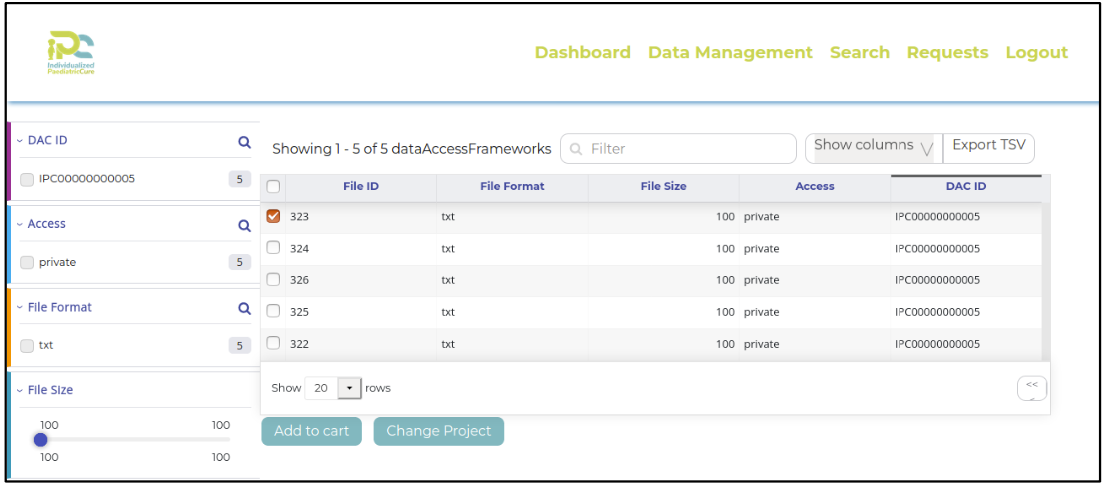Over the past 59 months, XLAB has been deeply involved in the ground-breaking world of personalized medicine, specifically addressing childhood cancer. Our dedicated Research team was part of the iPC project, an excellent collaboration of 23 partners from 11 countries including Australia and the United States. The project aimed to customize treatments for pediatric cancers and brought together key players from the healthcare sector such as the Baylor College of Medicine, the Children’s Hospital of Philadelphia, and IBM.
From data to digital patients
The focus centers on a specific group of pediatric tumors, encompassing both high-incidence and high-risk types. Data is the key, and iPC has been treating it with the utmost care, generating, organizing, standardizing, and harmonizing top-tier multidisciplinary data. This approach harnesses the potential of Big Data and HPC to personalize treatments for European citizens. The iPC journey was a dynamic blend of knowledge, machine-learning, bioinformatics innovation, and mechanistic models converging into computational excellence.
In essence, the iPC mission aimed to predict optimal standard and experimental therapies for each child, skillfully blending conventional and experimental treatments. The game-changer aspect introduced by the project was the utilization of virtual patient models, i.e., in-silico avatars that analyze information to provide personalized diagnostics and treatment recommendations. Yet, it doesn’t end here. Imagine a platform empowering caregivers to explore models, deciphering the advantages and disadvantages of specific treatment combinations for each young patient.
And how do we build these digital patients? By weaving together cutting-edge computational methods and data from molecular assays, clinical trials, and preclinical studies. Our predictions go beyond theory – we’ve been testing them on real-time data from clinical trials and experimenting with therapies in pre-clinical settings. Learn more about the project by browsing the official website.
Advancing the iPC platform: Cloud, Security, and AI developments
XLAB has been instrumental in shaping the iPC platform, bringing its expertise to the forefront of development while ensuring a robust foundation in cloud computing and security. Our contributions expanded beyond the originally envisaged role, involving the creation of access control and anonymization mechanisms for a variety of data sources. We collaborated closely with the Barcelona Supercomputing Centre over the past 4 years to build a flexible computing infrastructure that provides Data Access Committees a simple framework to apply for data access, facilitating the process of granting and managing granted credentials by internal and external data requesters and providers. This is implemented over a subportal dedicated to manage and acquire access credentials, and build on the results of our MIKELANGELO and DICE projects.


The DAC-admin reviews her / his DAC’s information and submits relevant data about her / his DAC and finds an interesting dataset in the iPC Data Catalogue Portal.
In addition to the technical aspects, our team contributed to the development of a cloud-based solution for computational models and the enhancement of data repositories to fortify them against potential threats. We were dedicated to supporting the project by sharing knowledge through both internal and external training initiatives, empowering users to navigate the complexities of the iPC platform and make the most of computational models.
One of the most remarkable contributions comes from our AI team, which developed a solution based on a data-efficient active learning. In this innovation approach, AI-generated models are iteratively refined through the collaborative interaction of pathologists. This breakthrough enables image-based automated cancer diagnosis and anomaly detection through self-supervised and unsupervised learning. Moreover, it facilitates the generation of Synthetic (imagery and genomic) data, augmenting existing datasets—particularly crucial in areas where datasets are typically small or subject to stringent ethical constraints, such as in pediatric cancer research. Based on these achievements, our AI team has won the SegPC Plasma Cell Segmentation competition in 2021, earning the spot among the world’s leading researchers, contributing to the advancement of medical imaging technologies. We got the priceless opportunity to present our winning solution at the renowned SPIE Medical Imaging conference, the event where the science of medical imaging is explored.

Our team presented the winning machine learning solution at the renowned SPIE Medical Imaging conference.
Collective efforts for the future of personalized medicine
The partners of the iPC project formed an interdisciplinary team, including basic, translational, and clinical researchers who are leaders in their respective fields: Technikon, IBM Research, Baylor College of Medicine, Institut Curie, Technische Universität Darmstadt (TUDA), Università degli Studi di Napoli Federico II, Universiteit Gent, Barcelona Supercomputing Center, Prinses Maxima Centrum voor Kinderoncologie, Max-Planck-Gesellschaft zur Förderung der Wissenschaften, Academisch Medisch Centrum bij de Universiteit van Amsterdam, Universitätsklinikum Heidelberg, Germans Trias i Pujol Research Institute (IGTP), Alacris Theranostics, Universität Zürich, Ludwig-Maximilians- Universität München, The Children’s Hospital of Philadelphia, Instituto per le Applicazioni del Calcolo M.Picone of the National Research Council, Children’s Medical Research Institute, Deutsches Krebsforschungszentrum Heidelberg and Charité - Universitätsmedizin Berlin.
Together, we established strong ties with European Centers of Excellence, patient organizations, and participated in clinical trials focused on personalized medicine. Our collective efforts are making meaningful progress in advancing treatments for children with cancer and we’re truly proud to be part of this amazing project.









